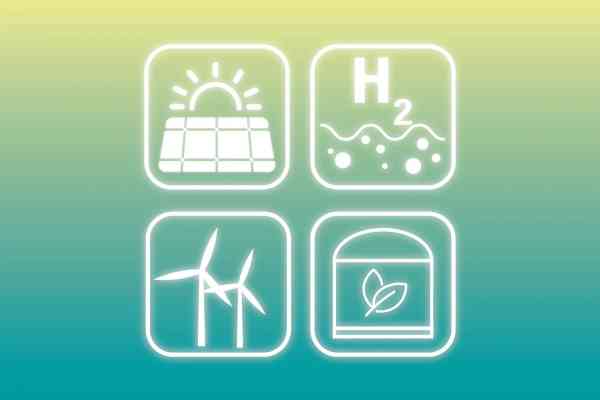September 4th, 2025 | 07:20 CEST
BYD under fire: How First Hydrogen, SMR Technology, and Nel ASA aim to disrupt the Hydrogen Market
The mobility of the future will be shaped by more than just one technology. While electric batteries dominate in passenger vehicles, hydrogen offers enormous potential in heavy-duty transport, light commercial vehicles, and industrial applications. Its breakthrough depends on affordable, green production. Innovative small modular reactors (SMRs) could be the game changer here, radically reducing costs and guaranteeing long-term production. In this context, we take a closer look at BYD, the industry leader in electric mobility. First Hydrogen has already tested hydrogen-powered vehicles on the road and is now increasingly focusing on SMR development. Last but not least, we analyze hydrogen veteran Plug Power.
time to read: 4 minutes
|
Author:
Armin Schulz
ISIN:
BYD CO. LTD H YC 1 | CNE100000296 , First Hydrogen Corp. | CA32057N1042 , NEL ASA NK-_20 | NO0010081235
Table of contents:

"[...] dynaCERT's HydraGEN™ device offers a retrofit solution for diesel engines designed to protect the environment while providing economic benefits. [...]" Bernd Krueper, President & Director, dynaCERT Inc.
Author
Armin Schulz
Born in Mönchengladbach, he studied business administration in the Netherlands. In the course of his studies he came into contact with the stock exchange for the first time. He has more than 25 years of experience in stock market business.
Tag cloud
Shares cloud
BYD – Calm in the hydrogen race, focused on the road
BYD does not see hydrogen drives as an immediate threat to its core business. Although the Company is researching the technology itself and holds relevant patents, the focus remains clearly on battery-electric mobility. Hydrogen technology currently plays a role primarily in the niche segment of commercial vehicles. For the mass market of passenger vehicles, BYD continues to rely on the more mature and cost-efficient battery.
The latest operating figures for August underscore this strategy, but also reveal challenges. Total production of electric and plug-in hybrid vehicles fell by 3.8% compared to the previous year, marking the second consecutive month of decline. The shift in sales figures is interesting. While sales of pure electric vehicles (BEVs) rose by over 34%, sales of plug-in hybrids (PHEVs) slumped by almost 23%. This underscores the trend toward fully electric vehicles. The latest quarterly figures fell short of analysts' expectations.
Despite the decline in production, BYD is strengthening its global position. The massive foreign growth of over 150% in NEV deliveries compensates for domestic weaknesses. The strategic focus on international markets and the further development of its own technology platform remain crucial. For investors, BYD is thus at a turning point. Short-term margin pressure from the price war in China is countered by long-term growth potential from global expansion. The stock is under pressure following the quarterly figures and currently costs EUR 11.85.
First Hydrogen – Focusing on SMRs for competitive hydrogen
First Hydrogen is systematically pushing ahead with its plans for a reliable green hydrogen supply. To this end, the Company has established a dedicated subsidiary, First Nuclear Corp., which will develop small modular reactors (SMRs) for hydrogen production. These SMRs provide a constant supply of energy for electrolysis, regardless of weather conditions, which is a competitive advantage. This could significantly reduce the production costs of green hydrogen and make it much more attractive for industrial applications, such as the decarbonization of the steel industry.
The technology is receiving a boost from the EU taxonomy, which gives nuclear energy a green label. First Hydrogen is positioning itself early on as an integrated supplier that aims to provide not only hydrogen-powered light commercial vehicles, but also the fuel of the future. The latest strategic expansion of its collaboration with the University of Alberta focuses specifically on optimizing SMR designs, fuel materials, and molten salt cooling technologies to further increase efficiency and safety.
First Hydrogen is bridging the gap between energy production and application with its own vehicle fleet. The light commercial vehicles with fuel cells have already proven their suitability for everyday use in practical tests in the UK, with a range of over 600 km per tank filling. This proof of concept is crucial because the actual goal is vertical integration. The Company is working on a complete hydrogen ecosystem solution based on the "Hydrogen-as-a-Service" model. Customers will receive a complete solution from a single source. The planned in-house hydrogen production via SMR would help First Hydrogen to operate more independently of public infrastructure development. The share is currently trading at CAD 0.54.
Nel ASA – Fully committed to renewable energies
While small modular reactors (SMRs) are currently receiving a lot of media attention, Nel ASA is not active in this area. The Norwegian company continues to focus entirely on its core competence, electrolyzers powered by renewable energies. Although the latest quarterly report shows a challenging market, management is pursuing a clear plan for a turnaround. This consists of strict cost discipline, the targeted further development of its own electrolyzer technologies, and insisting on a solid liquidity base in order to emerge stronger from the current phase.
The current figures make for sobering reading. Revenue slumped by 48% compared to the same quarter last year, with order intake falling by as much as 74%. The alkaline segment in particular is struggling due to delayed investment decisions on large-scale projects and a lack of milestones. The PEM segment, on the other hand, proved to be more stable. Despite being in the red, Nel has a robust cushion of over NOK 1.9 billion in liquid assets, which secures its room for maneuver. Cost reductions and the temporary shutdown of Herøya production are intended to reduce the cash burn rate.
Nel is relying on two levers to achieve its turnaround: technological leadership and strategic partnerships. The development of the next generation of alkaline and PEM electrolyzers is progressing according to plan. In addition, the collaboration with an industrial giant such as Samsung E&A offers the opportunity to implement global projects more efficiently and tap into new markets. The path to profitability depends largely on when the numerous project enquiries can be converted into concrete, large orders. The share price is currently EUR 0.192.
The future of mobility and hydrogen production is diverse. BYD remains calm despite short-term challenges and is the undisputed leader in the battery-electric mass market. First Hydrogen aims to radically reduce the cost of green hydrogen with its SMR strategy, thereby expanding its value chain. Nel ASA, on the other hand, is consistently focusing on its core competence, the production of electrolyzers powered by renewable energies. Each company is thus pursuing its own path to the future.
Conflict of interest
Pursuant to §85 of the German Securities Trading Act (WpHG), we point out that Apaton Finance GmbH as well as partners, authors or employees of Apaton Finance GmbH (hereinafter referred to as "Relevant Persons") may hold shares or other financial instruments of the aforementioned companies in the future or may bet on rising or falling prices and thus a conflict of interest may arise in the future. The Relevant Persons reserve the right to buy or sell shares or other financial instruments of the Company at any time (hereinafter each a "Transaction"). Transactions may, under certain circumstances, influence the respective price of the shares or other financial instruments of the Company.
In addition, Apaton Finance GmbH is active in the context of the preparation and publication of the reporting in paid contractual relationships.
For this reason, there is a concrete conflict of interest.
The above information on existing conflicts of interest applies to all types and forms of publication used by Apaton Finance GmbH for publications on companies.
Risk notice
Apaton Finance GmbH offers editors, agencies and companies the opportunity to publish commentaries, interviews, summaries, news and the like on news.financial. These contents are exclusively for the information of the readers and do not represent any call to action or recommendations, neither explicitly nor implicitly they are to be understood as an assurance of possible price developments. The contents do not replace individual expert investment advice and do not constitute an offer to sell the discussed share(s) or other financial instruments, nor an invitation to buy or sell such.
The content is expressly not a financial analysis, but a journalistic or advertising text. Readers or users who make investment decisions or carry out transactions on the basis of the information provided here do so entirely at their own risk. No contractual relationship is established between Apaton Finance GmbH and its readers or the users of its offers, as our information only refers to the company and not to the investment decision of the reader or user.
The acquisition of financial instruments involves high risks, which can lead to the total loss of the invested capital. The information published by Apaton Finance GmbH and its authors is based on careful research. Nevertheless, no liability is assumed for financial losses or a content-related guarantee for the topicality, correctness, appropriateness and completeness of the content provided here. Please also note our Terms of use.




